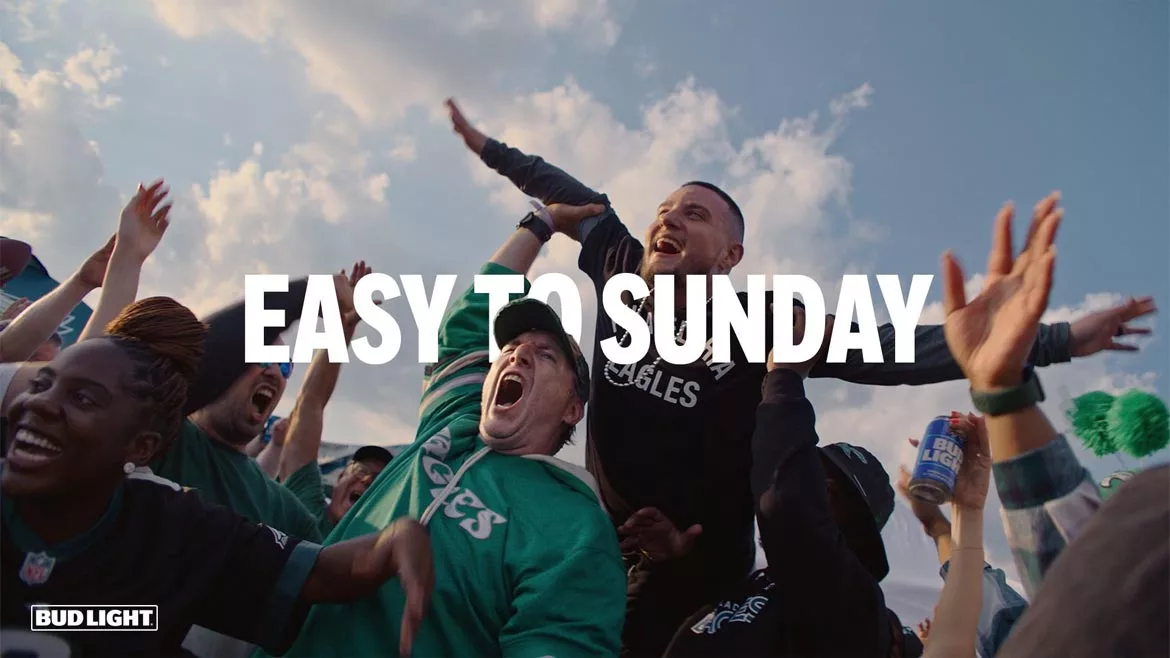Beverage Beat
Sports sponsorships enter transformative phase
New beverage alcohol brands shake up status quo

Image courtesy of Anheuser-Busch
Early fall is one of the peak times for sports with baseball wrapping up, collegiate and pro football heating up, and hockey and basketball just beginning their seasons. As consumers flock to stadiums and arenas, or enjoy watching at sports bars or their homes, one element remains prevalent across all sects: sponsorships.
Shedding light on this entity, SponsorUnited, a sports and entertainment platform, released its inaugural “Alcohol Beverages Marketing Partnerships 2023” report, which analyzes sponsorship trends and spend across various alcohol brands. Analyzing more than 1,700 brands, 21,000 assets, and 18,000 social posts related to sponsorships by the alcohol industry, the report evaluated these materials from January 2021 through August 2023.
The report states that during the 2022-23 season, beverage alcohol brands contributed $480 million in sponsorship revenue across NFL, NBA, MLB and NHL teams. Of each league’s total team sponsorship revenue, MLB had the highest share at 9.9% followed by the NHL (8.8%), NFL (8.4%) and NBA (6.1%), SponsorUnited shares.
“As sponsorship revenues from alcoholic beverage brands approach the half-billion mark, we are witnessing a transformative phase in the industry’s use of sports marketing,” said Bob Lynch, founder and CEO of SponsorUnited, in a statement. “The influx of new, agile brands and diversification of spirits categories leveraging sponsorships and endorsements, highlights a shift toward reaching and engaging audiences in more authentic and targeted ways. This is a prime example of the evolving symbiosis between sports and the alcohol industry.”
The report highlighted that consumer’s beverage alcohol preference differs among the sports and non-sport entities. However, domestic beer still accounts for the lion’s share in sports setting as it comprises 60% of Top 10 most active brands.
Earlier this fall, Bud Light announced one of the brand’s biggest NFL campaigns ever: Easy to Sunday. The campaign, part of the brand’s Easy to Enjoy platform established at Super Bowl LVII, celebrates the traditions and rituals of real NFL fans across the country. Easy to Sunday also marked the return of Bud Light NFL team cans. To celebrate the return of the NFL, Bud Light hosted a promotional sweepstakes to give away more than 2,000 subscriptions to NFL Sunday Ticket from YouTube and YouTube TV, and consumers also had a chance to win eGift cards for Fanatics merchandise on NFLShop.com.
“Bud Light has been the Official Beer Sponsor of the NFL for over 27 years, and every season we look forward to delighting fans by making their gameday celebrations easier over a Bud Light and America’s most popular sport: football,” said Todd Allen, vice president of marketing for Bud Light, in a statement at the time of the announcement. “We know for NFL fans Sunday has become synonymous not only with game day, but also with time-honored traditions. Our new Easy to Sunday campaign celebrates and honors those real Sunday moments that bring NFL fans across the country closer to their friends, their family and their local communities ― and we are so proud to play a role in as a brand.”
Beyond beer, the SponsorUnited report notes that the wine industry has set its sights on pro tennis. In the past 12 months, 45% of alcohol brands investing in professional tennis sponsorship are wine, with more than 20 new brands entering the fray.
Furthermore, new entrants, not just wine new entrants, are taking an active role in the sponsorship arena, with more than 330 new brands entering sponsored partnerships during the past 12 months, according to SponsorUnited. The leading categories were wine and craft beer, the report found.
SponsorUnited also highlights the impact that Gen Z’s beverage alcohol consumption patterns, or lack thereof, is having on sponsorship activity. Zero- and low-alcohol beers are diversifying their sponsorship presence. Since 2021, the number of active brands in this subcategory more than doubled, the report states. The two major brands ― Heineken 0.0 and Budweiser Zero ― lost in combination one-third of market share as smaller alternative brands have expanded sponsorships.
Whether its sports or other forms of entertainment, it looks like the makeup of beverage alcohol sponsorships is in the midst of a shift.
Looking for a reprint of this article?
From high-res PDFs to custom plaques, order your copy today!





